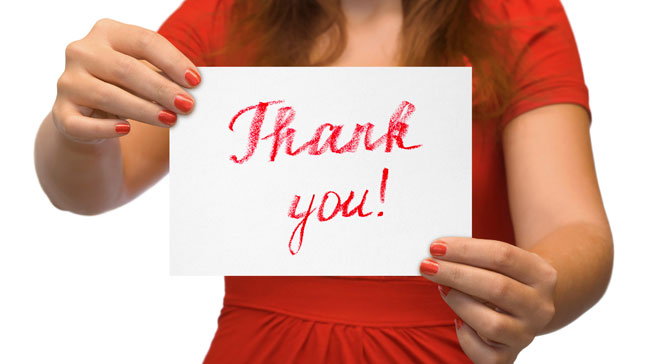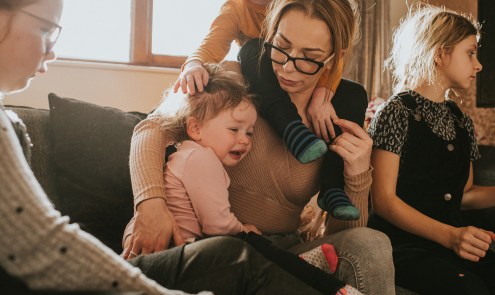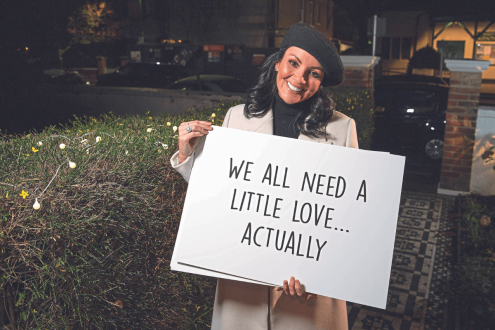Good manners never hurt anybody
Manners are the lifeblood of a happy society, says Sally Brampton

I have been feeling a little like Miss Manners of late. The transformation is complete. I am my mother, or perhaps my grandmother. I find myself speaking to people as if they were recalcitrant three-year-olds. ‘What’s the nice word?’ Long pause. ‘Ple-ea-se.’
Actually, I’m not quite that stupid. I value my life too much, but I am increasingly prone to hissing ‘Please’ out of the side of my mouth when somebody pushes past me, or loudly prompting ‘Thank you’ when I step aside to let somebody pass. Good manners never hurt anybody. See? I am my grandmother. I jest. She was one of the most charming women you would ever care to meet. Everybody adored her. She didn’t simply think it was well-mannered to be gracious at all times, she thought it well-mannered to match her bag to her shoes. She also thought it ill-mannered to slouch at the table and taught me deportment by putting a ruler down my back and balancing a book on my head. It’s tricky. Try doing that while eating a plate of spaghetti, and you’ll know what I mean. For years afterwards, every time I went on a dinner date, I was terrified I would miss my mouth with my fork, so concerned was I about sitting up straight.
But I digress. Manners are the lifeblood of a happy society. Walk into a newsagent and wordlessly slam some coins on the counter. No connection. You may as well both be marionettes, and unhappy marionettes at that. Rudeness can spoil everybody’s day. Then try saying please and thank you and how was your morning? Ta-da! Everybody lives happily ever after.
When it comes to the art of good manners, there have been two powerful female mentors in my life. As well as my grandmother, there was the late, and very great, Liz Tilberis, to whom I was a young assistant when she was fashion editor of Vogue. I was, quite possibly, the worst assistant she ever had. I found it teeth-grittingly difficult to be charming to models demanding bottles of mineral water when, in those days (the late Seventies), they were almost impossible to find. I would tramp the streets of London for hours, then bear my precious cargo back to the studio. Said model would stick her nose in the air – ‘I wanted Perrier, not Evian.’ My response was less than polite. Cue a model hissy fit, followed by a walk-out. Enter Liz. After a few words, the model would be begging to waft about in a slip of chiffon and smile happily for the camera. ‘How can you be so nice to spoiled brats?’ I once asked her. Liz simply shrugged. ‘If you are nice to people, they will do what you want,’ she said. ‘If you’re not, they won’t.’ It is a lesson I have never forgotten.
In that spirit, you might say that good manners are selfish. According to evolutionary behaviourists, we are wired to be obliging, simply in order to survive. Altruism or the theory of ‘tit for tat’ kept us alive for eons. If I’ve just killed a wild boar and offer you a hunk, you’re more likely to offer me a slice of yours when I’m dying of hunger. We may no longer be facing starvation (at least, not in Western societies) but the principle still applies. If I show you kindness and respect, you are more likely to respond well and we can both go cheerfully about our day.
So if I say please, will you please say thank you. I’ll tit for your tat.








